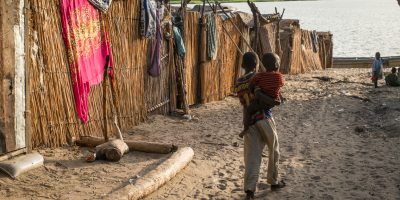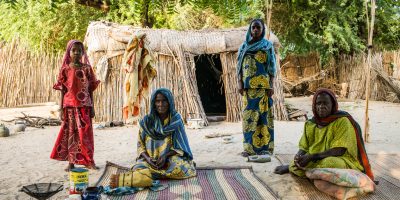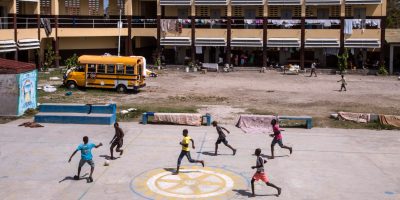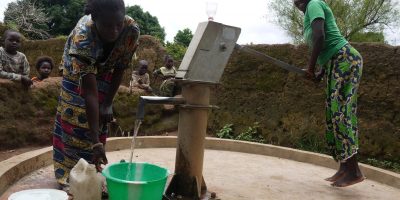Search
Search within
1447 results found
Research paper
National policy development for cotrimoxazole prophylaxis in Malawi, Uganda and Zambia: the relationship between Context, Evidence and Links
Several frameworks exist to analyse factors which influence the uptake of evidence into policy processes in resource poor settings, yet empirical analyses of health policy making in these settings are relatively rare. National policy making for cotrimoxazole preventive therapy in…
Research paper
Task shifting for tuberculosis control: A qualitative study of community-based directly observed therapy in urban Uganda
This qualitative study of task shifting examined tuberculosis (TB) therapy under modified community-based directly observed treatment short-course (CB-DOTS) in Kampala, Uganda. The authors recommend an intervention evaluating this modified DOTS strategy on a larger scale in TB high-burden, resource-poor urban…
A History of Urban Planning and Infectious Diseases: Colonial Senegal in the Early Twentieth Century
This paper deals with the spatial implications of the French sanitary policies in early colonial urban Senegal. It focuses on the French politics of residential segregation following the outbreak of the bubonic plague in Dakar in 1914, and their precedents…
‘Mobile transmigrants’ or ‘unsettled returnees’? myth of return and permanent resettlement among Senegalese migrants
Based on ethnographic research conducted among Senegalese migrants in the home country and in Italy, this paper demonstrates the existence, the logics, and functioning of a transmigrant movement made of people who are regular ‘comers and goers’ between Africa and…
Research paper
Rural-to-urban migration, kinship networks, and fertility among the Igbo in Nigeria
This paper presents ethnographic data to suggest that fertility behavior in contemporary Igbo-speaking Nigeria cannot be understood without taking into account the ways in which rural and urban social and demographic regimes are mutually implicated and dialectically constituted.

Evidence review
Child Centred Disaster Risk Reduction and Climate Change Adaptation: Roles of Gender and Culture in Indonesia
The principle aim of this research was to investigate the roles of gender and religion in child-centred disaster risk reduction (DRR). Moreover, and through participatory research, informal conversations and direct advocacy, the project team hoped to build knowledge and awareness…

Background report
The Implications of Climate Change for Health in Africa
The interactions between health and climate change are clearly recognised; the Intergovernmental Panel on Climate Change includes a chapter on health issues in all its publications. But we still need to better understand all the possible impacts of climate change…

Briefing
Community-Based Approach to Improve Access to Prevention of Mother-to-Child Transmission Programmes in Dukwi Refugee Camp, Botswana
Prior to the UNHCR community-based PMTCT protocol, pregnant refugee women living with HIV were unable to access essential PMTCT services. Refugee women are now able to have access to a comprehensive PMTCT programme.

Evidence review
Climate Change and Health in SADC Region: Review of the Current State of Knowledge
Evidence shows that the SADC region is experiencing increasing frequency of hot days and decreasing frequency of extremely cold days. Rainfall trends are variable but evidence points to an increased inter-annual variability, with extremely wet periods and more intense droughts…

Evidence review
Culture and Mental Health in Haiti
This paper reviews and summarizes the available literature on Haitian mental health and mental health services. This review was conducted in light of the Haitian earthquake in January 2010. We searched Medline, Google Scholar and other available databases to gather…

Evidence review
Health and the Urban Transition. Effects of Household Perceptions, Illness, and Environmental Pollution on Clean Water Investment
Recent efforts to reinvigorate the connections between urban planning and health have usefully brought the field back to one of its original roles. Current research, however, has focused on industrialized cities, overlooking some of the important urbanization processes in poor…

Briefing
Water and Sanitation in Humanitarian Emergencies
In a humanitarian crisis a population’s needs are great and many–for medical attention, shelter, safe water and adequate sanitation, food, and security. Disasters that occur in places that are already resource-poor and underserviced are more devastating than they might otherwise…


